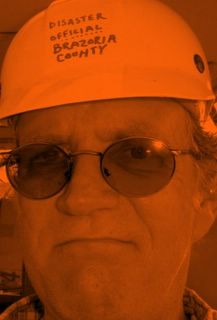My own personal contempt of court story
A long time ago I had a secret.
A guy strolls into my walk-in-closet-size office in Galveston, which was The Galveston Bureau of The Houston Post.
I was sitting there, doing nothing; it almost time to go home.
He had a bunch of Xerox copies of State Health Department inspection reports about the Autmn Hills nursing home in Texas City that he said was being investigated by the grand jury.
He wanted to remain anonymous, I said OK and he talked to me.
The situation was this: the grand jury was about to indict the corporation that owned the nursing home for murder. Essentially, the nursing home patients were receiving poor care, the inspection reports said. Real poor care. And the local district attorney wasn't real happy about what the grand jury was about to do. A corporation had never been charged with murder in Texas. Ever. Groundbreaking legal stuff.
I went to the DA and talked to him, showed him the documents I had, and he confirmed everything.
Front-page, copyright story. The rest of the media was all over the courthouse the next day.
The Galveston version of The 100 Years War then ensured. It went on for years, literally.
At one point, the lawyers for the defense subpoenaed me and a freelance reporter who had written about the case for the now-defunct Houston City Magazine. They wanted our secret sources and our notes. We refused. We were held in contempt and ordered to jail, but the judge, State District Judge Don Morgan, allowed us to post $500 bail. I was in jail all of 45 minutes; long enough to be fingerprinted and photographed.
It was a big media hoo-ha. There's always lots of media coverage when one of their own get put on the spot and sent to the clink, even if it was only for 45 minutes.
Our lawyers appealed to the Texas Court of Criminal Appeals, which ruled against me and the freelancer.
Then ...nothing else happened, as far as we reporters were concerned. Nobodying said anything. Nobody came to take me or the other reporter away to jail. Technically, I guess we're still free on $500 bail and have been for the last 20 years or so.
The murder case against Autumn Hills moved to San Antonio on a change of venue. There was a six-month trial. It ended in a hung jury. Hung by one. The rest wanted to vote guilty.
All told, this took about four years, maybe five.
Later, Steven Long, a friend of mine who wrote a book about the case that was published by Texas Monthly (when it had a book publishing arm), told me something that the judge had told him.
It wasn't the defense lawyers who wanted to go after the reporters, although they certainly wouldln't have minded having the information that was sought. It was the judge. He wanted to drum up publicity, Long told me. He said the judge, whom he knew quite well, told him that.
Now, I never asked the judge about that, and I haven't seen him since the mid-1980s, when all this was going on, so I don't what he'd have to say.
But imagine that. All those lawyer fees, all that news coverage, that whole media circus about the First Amendment showdown ... all because the judge wanted to create a publicity storm. The judge later went to work for the state attorney general's office.
I bring all this up because of the current First Amendment privilege battle involving Judith Miller of the New York Times, the last holdout in the federal government's crusade to have journalists reveal their sources in the Judith Plame affair.
Time Magazine, the big wusses, have caved in. Miller remains on the hotseat -- and she didn't even write a story about the Valerie Plame affair. Still, the court and the government are ready to put her in jail if she doesn't obey.
You think there might be an underlying motive here? I do. It's real simple. The current administration wants to show the media who's boss. They want to tech them a lesson.
In 1995, the government created about 3.6 million secrets, according to The Washington Post. In 2004, there are more than 15.5 million secrets, according to the government's Information Security Oversight Office, The Post reported on May 26. The Administration doesn't want people talking anonymously to the media. Sometimes it gums up their plans, and oftentimes it embarrasses them.
Would the families of the old folks who died at the Autumn Hills nursing ever had their day in court had an anonymous source not let the media know what was going on? It's hard to say, but it definitely put pressure on the recalcitrant DA to go forward with the case, even though he didn't want to.
The truth shall set ye free, the Good Book says. But sometimes, to get to the truth, the media has to use anonymous sources.
[nyt]
[BeldarBlog]












3 comments:
You forgot about the conflict of interest -- Fulbright & Jawarski representing The Post and the people trying to jail you ...
I don't remember who represented me. Really. Too long ago. Please enlighten me if you can.
Great story, Banjo. Thanks.
Post a Comment